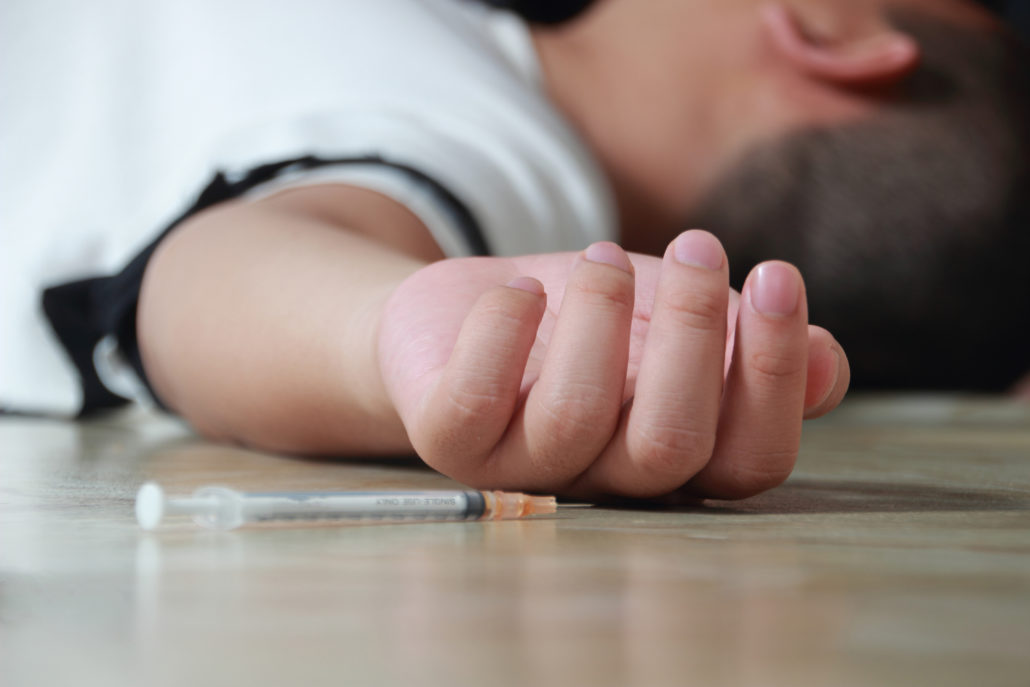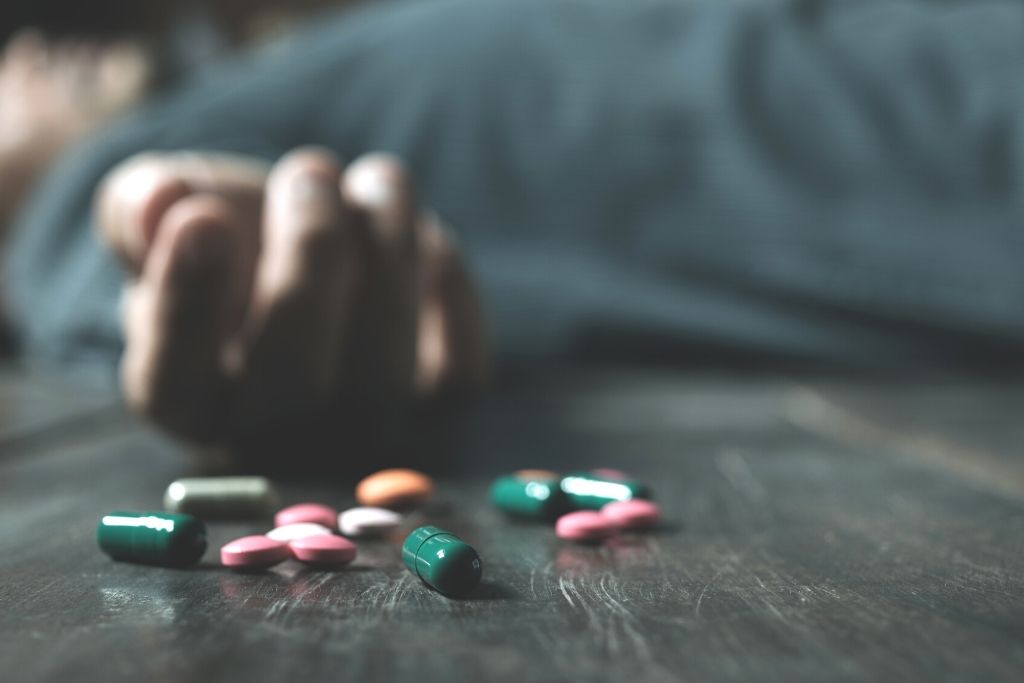What are Hallucinogens?
Hallucinogens are a class of drugs that cause hallucinations—profound changes in a person’s perceptions of reality. It is an illegal drug that is either synthetically manufactured or derived from plants. People who regularly use hallucinogens may experience ‘flashbacks’, which can occur days, weeks, months, or even years after taking the hallucinogen. Abuse of these drugs can cause serious harm to the user or those around them, and continued abuse can lead to physical or psychological addiction in some cases.
Also known as ‘psychedelic drugs, hallucinogens target specific brain centers to alter their understanding of sensory input. It changes a person’s awareness of their surroundings as well as their thoughts and feelings. Many hallucinogens are Schedule I under the Controlled Substances Act, meaning that they have a high potential for abuse, no currently accepted medical use in treatment in the United States, and a lack of accepted safety for use under medical supervision. This is according to the US Drug Enforcement Administration (DEA). [1]
Common Street Names include:
- Acid, Blotter
- Cubes
- Fry
- Mind Candy
- Mushrooms
- Shrooms
- Special K
- STP
- X
- XTC

Common Hallucinogens and Dissociative Drugs
LSD (d-lysergic acid diethylamide)
It is one of the most potent mind-altering chemicals. It is a clear or white odorless material made from lysergic acid, which is found in a fungus that grows on rye and other grains.
Psilocybin(4-phosphoryloxy-N,N-dimethyltryptamine)
It is extracted from certain types of mushrooms found in tropical and subtropical regions of South America, Mexico, and the United States.
Peyote (Mescaline)
It is a small, spineless cactus with mescaline as its main ingredient. Peyote can also be synthetic.
DMT (Dimethyltryptamine)
It is a powerful hallucinogenic chemical found naturally occurring in some Amazonian plant species (see “Ayahuasca”) and also synthesized in the laboratory. Synthetic DMT usually takes the form of a white crystalline powder and is typically vaporized or smoked in a pipe.
Ayahuasca
A hallucinogenic brew made from one of several Amazonian plants containing DMT (the primary psychoactive ingredient) along with a vine containing a natural alkaloid that prevents the normal breakdown of DMT in the digestive tract.
251-NBOMe
A synthetic hallucinogen with similarities both to LSD and MDMA (see DrugFacts: MDMA) but that is much more potent. Developed for use in brain research, when sold illegally it is sometimes called N-Bomb or 251.
PCP (Phencyclidine)
PCP is a dangerous manmade substance that was originally developed as an anesthetic but was discontinued for human use in 1965 due to side effects.
Ketamine
It is used as a surgery anesthetic for humans and animals. Much of the ketamine sold illegally come from veterinary offices.
Dextromethorphan (DXM)
A cough suppressant and mucus-clearing ingredient in some over-the-counter cold and cough medicines (syrups, tablets, and gel capsules).
Salvia (Salvia divinorum)
It is a plant common in southern Mexico and Central and South America. Salvia is typically ingested by chewing fresh leaves or by drinking their extracted juices.
Effects of Hallucinogens and Dissociative Drugs
The effects of hallucinogens are highly unpredictable and changing, even if the person has used the same drug before. Factors that influence the hallucinogens or acid side effects may include the person’s mood and personality, and the type of drugs. There are reports of dependence and difficulties stopping use among people who use them regularly.
Hallucinogens alter normal brain function by disrupting communication between chemical systems in the brain and spinal cord. Hallucinogens also hinder the release of serotonin (the chemical responsible for regulating mood, sleep, sensory perception, body temperature, sex drive, and muscle control). However, repeated use can train the brain to become dependent on a Hallucinogen for a release of serotonin instead of the brain producing average amounts on its own.
The effects of hallucinogens can be immediate or long-term, as listed in the table below.
Immediate
Long-Term
- Increased heart rate and body temperature
- Flashbacks (spontaneous recurrences of a specific experience). Sometimes these can last for days, weeks or sometimes even years after taking the drug.
- Enlarged pupils
- Dependence
- A trance-like state
- Depression
- Restlessness
- Anxiety and panic attacks
- Nausea and vomiting
- Memory loss
- Hallucinations (seeing or hearing things that aren’t really there)
- Psychosis
- Stomach cramps
- Seizures
- Disorientation
- Amnesia
- Tiredness, dizziness and amnesia
- Inability to move
- Anxiety, panic attacks, fear or terror (a ‘bad trip’)
- Trouble breathing
- Loss of consciousness
- Visual disturbances
- Paranoia (feeling extremely suspicious) and psychosis, lasting up to several hours after the drug effects have worn off
- Paranoia
- Poisoning, particularly with magic mushrooms if the wrong type is used. This can be fatal
- Hallucinations
Hallucinogen Overdose

An overdose occurs when a person uses enough of a drug to produce serious adverse effects, life-threatening symptoms, or death. Most classic hallucinogens may create extremely unpleasant experiences at high doses. Medical severe emergencies and several fatalities have been reported from these drugs, such as 251-NBOMe. Mixing hallucinogens, such as PCP, with alcohol or other drugs, can increase the risk of adverse effects and overdose. For example, an overdose of PCP or ketamine can result in depressed breathing, coma, convulsions, seizures, and death.
Hallucinogen Addiction
Hallucinogens can be addictive, and people can develop a tolerance for them, which means they need higher and or more frequent doses of the drug to get the desired effects. Some people develop psychological dependence and feel that regular drug use is an essential part of their lives.
Psychological Dependence Can Take Place When
- It feels the need to take the drug more frequently
- User goes through extremes to get the drug
- User starts avoiding responsibilities or friends and family in favor of using the drug
- The individual continues to take the drug despite recognizing the severe consequences of doing so
Moreover, people can become physically dependent on hallucinogens like PCP or ketamine. Physical addiction may start with tolerance to the drug. It means that they need higher or more frequent doses of the drug to get the desired effects. If a person stops taking the drug, they may experience withdrawal symptoms. Treatment options for drug dependence include detoxification, individual counseling, and group therapy.
Hallucinogen Withdrawal Symptoms
Certain hallucinogens cause dependence, a physical reliance on a drug resulting in withdrawal symptoms when stopping the use of the drug.
PCP may cause dependence in people who abuse the drug long-term. Withdrawal symptoms from PCP may include intense cravings for the drug, headaches, and excessive sweating.
Detoxification allows a person to flush out harmful toxins residing in the body from substance abuse. A medically supervised detox program may provide the structure, support, and care necessary to complete detoxification and abstain from hallucinogen abuse. The best rehab centers provide a great medical detox program and follow it with a customized treatment plan.
Hallucinogen Addiction Treatment
Underestimating the severity of hallucinogen abuse can be dangerous. Misuse of the drugs can cause persistent psychosis, paranoia, and even suicidal thoughts, and for some people, these effects can occur long after abuse of the drugs has stopped.
Addiction treatment in an inpatient rehab center allows individuals struggling with hallucinogen abuse to overcome substance abuse in a safe environment, removed from any harmful triggers. In addition, a drug rehab center may provide professional care, evidence-based treatment methods, and peer support which makes all the difference in recovery success.
Find the Right Mental Health Treatment with Secondary Addiction Diagnosis
During your rehabilitation, the staff from your treatment facility will help you identify what caused your addiction and teach you skills that will help you change your behavior patterns and challenge the negative thoughts that led to your addiction. Sometimes, the pressures and problems in your life lead you to rely on substances to help you forget about them momentarily.
If you or someone you love is struggling with hallucinogen addiction, get them the safest help they need and deserve.
Inpatient medical detox and residential primary addiction treatment may be available at our affiliated facility at Level Up West Palm Beach Rehab. For some primary behavioral health treatment clients, medical detox and or addiction rehab may be required first. If you have a co-occurring severe substance abuse diagnosis, please contact us prior to beginning inpatient mental health therapy. Treatment services may vary. Please call us to learn which treatment options are most suited for your individual needs.
Sources
[1] DEA – https://www.dea.gov/sites/default/files/2020-06/Hallucinogens-2020.pdf
[2] Hallucinogens Addiction » Drug Alcohol Addiction – We Level Up